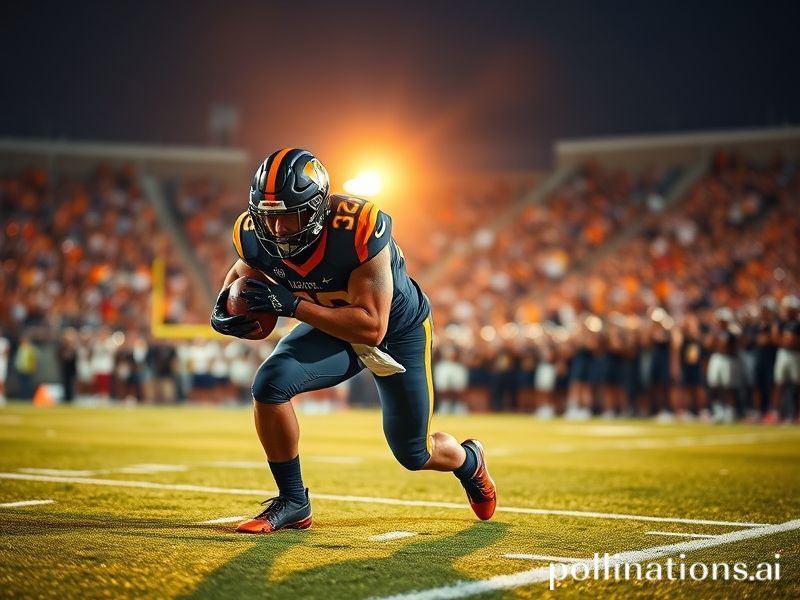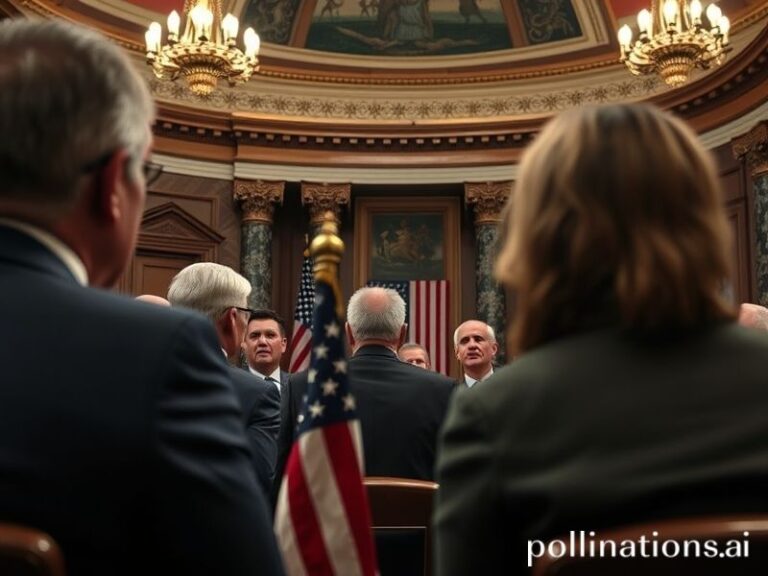From San Antonio to Shenzhen: How UTSA Football Became a Surprising Export of American Soft Power
Somewhere between the barricades of Kyiv and the fluorescent aisles of a Carrefour in Dubai, the phrase “UTSA football” is being whispered with the same reverence once reserved for the fall of the Berlin Wall—give or take a tailgate. The University of Texas at San Antonio, an institution most non-Texans still confuse with the Alamo’s gift shop, has improbably become a geopolitical litmus test. If you can locate the Alamodome on an unlabeled map, congratulations: you’re either a cartographer or a hedge-fund algorithm betting on the next frontier of American soft power.
Globally speaking, UTSA’s rise is less about the Xs and Os of American football and more about the $s and ¥s of soft-diplomacy-by-merchandise. Chinese factories now churn out Roadrunner-logo hoodies at a rate that would make a Foxconn shift supervisor blush; those hoodies then ride container ships through the Suez Canal, where Egyptian customs officers, still traumatized by the Ever Given fiasco, eye every pallet like it might spontaneously block global trade again. By the time the garments hit the shelves of suburban Berlin boutiques—next to artisanal kimchi and NFTs of Angela Merkel’s facial expressions—they’ve become wearable résumés of cosmopolitanism. “I vacation in Mykonos, but I suffer in San Antonio,” the hoodie silently brags.
Of course, the players themselves remain largely oblivious to their role as unwitting cultural ambassadors. They’re busy trying to pass Chemistry 101 while also learning a playbook thicker than most EU accession treaties. Meanwhile, European soccer scouts—who normally wouldn’t cross the Atlantic for anything less than a 16-year-old phenom—now lurk around UTSA practices, hoping to poach a 6’5″ tight end who runs a 4.4 forty. The joke’s on them: the kid’s YouTube highlight reel already has more views than the last Bundesliga final, and his NIL deal with a Slovenian energy-drink startup is denominated in Bitcoin, because nothing says “sound fiscal policy” like a currency that swings wider than a Brett Favre retirement announcement.
The broader significance? UTSA football is a case study in late-capitalist globalization wearing shoulder pads. Qatar’s beIN Sports just paid eight figures for broadcast rights, banking on the notion that nothing unites a fractured world like watching 22 padded mercenaries concuss each other under LED lights. In Lagos, Uber drivers stream games on cracked iPhones, ignoring the fuel queues forming around them. In Seoul, K-pop agencies study UTSA’s social-media strategy—turns out coordinated TikTok dances translate surprisingly well into coordinated blitz packages.
And yet, beneath the glossy veneer of international branding, the sport remains stubbornly provincial. The marching band still plays “Texas, Our Texas,” a song whose lyrics haven’t aged well since 1929, while the student section chants “U-T-S-A” with the fervor of medieval flagellants. Somewhere in the stands, an exchange student from Helsinki wonders why 65,000 people voluntarily sit in 38°C heat to watch a game that stops every twelve seconds for a committee meeting. He concludes it’s the same reason people still buy vinyl records: nostalgia for a simpler time that never actually existed.
As for the Roadrunners’ on-field fortunes, they oscillate between Top-25 dreams and Conference-USA reality, a bipolarity that mirrors the global economy itself. One week they upset a blue-blood program; the next they lose to a directional school whose mascot is an anthropomorphic ear of corn. Analysts in London call it “volatility”; fans in San Antonio call it “Tuesday.” Either way, the emotional whiplash is now exportable content, packaged into bite-sized despair clips for TikTok users in Jakarta who have never seen a football but understand heartbreak in any language.
In the end, UTSA football is what happens when American exceptionalism discovers e-commerce. It’s a cargo cult for the 21st century: we ship out spectacle, we import awe, and somewhere in the middle the transaction fees accrue to Mark Zuckerberg. The Roadrunners may or may not reach the College Football Playoff, but they’ve already won the only contest that matters—convincing the planet that a commuter school from South Texas is somehow essential to your identity. If that’s not a victory for late-stage absurdity, nothing is.







